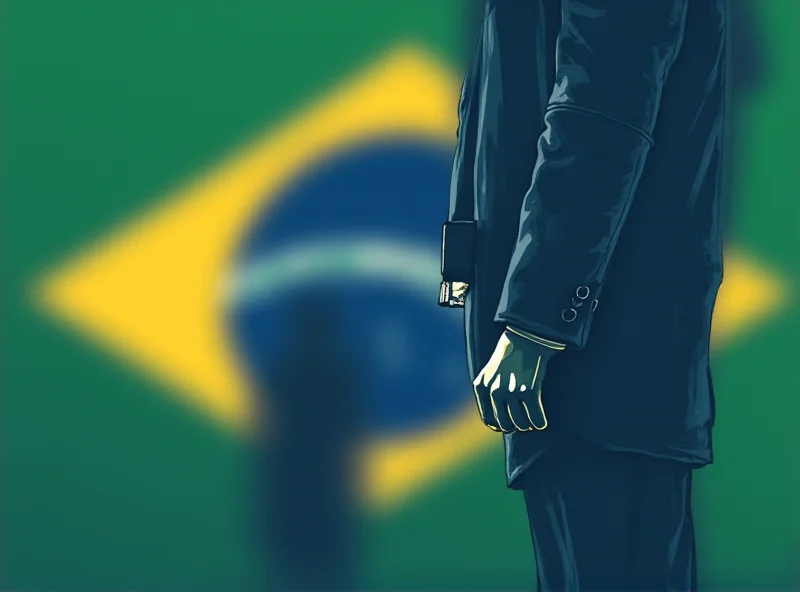The political landscape is heating up with several key developments making headlines. From legal challenges to concerns over potential flight risks, here's a look at the latest.
Bolsonaro's Legal Battles and Flight Risk
Former Brazilian President Bolsonaro is facing increased scrutiny as deputies, spurred on by Petistas, are urging the PGR (Procurador-Geral da República) to mandate electronic monitoring through an ankle bracelet. The deputies argue that this measure is "essential" due to the possibility that Bolsonaro might attempt to flee the country via land routes. This comes as Bolsonaro's legal team has already submitted its initial defense against an indictment accusing him of attempting a coup d'état, a case they insist should be heard by the full plenary of the STF (Supreme Federal Court).

The legal pressure on Bolsonaro continues to mount, raising questions about his future and the stability of the Brazilian political system.
Trans Quotas at UFSC Face Legal Challenge
Meanwhile, a resolution passed by the University of Santa Catarina (UFSC), which reserves quota spots for individuals identifying as part of a minority group in university entrance exams and public job competitions, is facing legal challenges. A women's association has initiated legal action against the university, arguing against the implementation of these trans quotas. This case highlights the ongoing debate surrounding affirmative action policies and the definition of minority groups in Brazil.

Beyond Brute Force: Combating Organized Crime
Shifting gears, experts emphasize that effectively combating organized crime requires more than just brute force. A successful strategy must include a deep understanding of how criminal factions operate, the ability to track the flow of illicit money, and the capacity to uncover their connections with corrupt individuals. As one analysis states: "The confrontation with organized crime requires the capacity to detect the functioning of the factions, the flow of money, and the relationships with corrupt agents."
This comprehensive approach necessitates a focus on intelligence gathering, financial analysis, and anti-corruption efforts to dismantle criminal networks effectively. Relying solely on force will only address the symptoms, not the root causes, of organized crime.

These various developments underscore the complex and evolving nature of the political and social landscape, demanding careful attention and informed analysis.
